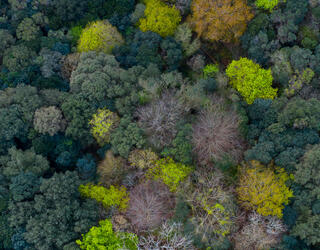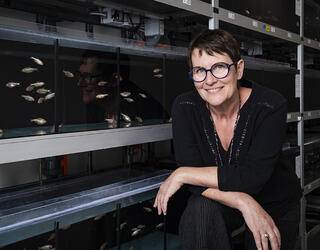Mycoses resistant to antifungal drugs are on the increase. Not least because treatments against pathogenic fungi are used in agriculture as well as in human and animal health.
Article
04.10.2025
Alaska is hit hard by climate change. The subsequent rise in temperatures causes permafrost to degrade. Without this underground layer of ice that acts as a cement, mountain slopes become fragile. This video takes you to the field to study the Alaskan soil...
Video
04.09.2025
At the Musée de l’Homme anthropology museum in Paris, an exhibition traces the movements of Homo sapiens across the long history of humanity. To address this complex topic, often the subject of fanciful representations, the scientific curators approached it...
Article
03.27.2025
Our topics
03.26.2025
The metabolism of astronauts, the behaviour of plants, the reactions of living beings to radiation and of foams to weightlessness… The International Space Station does not only observe Space, as...
01.22.2025
Are the dinosaurs in “Jurassic Park” realistic? How does the film franchise explore the impact and applications of science? These are some of the topics addressed in a book published last autumn, as...
Article
12.11.2024
At a ceremony held in Paris recenlty, the biologist Edith Heard was handed the CNRS Gold Medal, one of the most prestigious French scientific distinctions, for her outstanding research on epigenetics...
Article
12.02.2024
While very useful in ecosystems, mosquitoes tend to ruin the lives of humans. A CNRS team has even recently calculated how much these dipterans cost society, primarily due to the diseases they...
10.30.2024
Before going to school to learn how to read and write their language, children first manage to understand and then speak it. How are they able to do so, almost all of them spontaneously, without a...
Article
10.15.2024
The only permanent bipeds of the animal kingdom alongside humans, birds have an extraordinary sense of balance. How do these direct descendants of the dinosaurs maintain this stability, especially...
Article
10.11.2024
The fossils of this primate, which were discovered in the early 2000s and date back 7 million years, remain the subject of intense debate, notably as to whether they should be considered part of the...
09.03.2024
By depriving them more or less temporarily of their sense of smell, the Covid-19 pandemic made thousands of people abruptly realise the importance of their olfactory system. Research is now trying to...
07.30.2024
Forests cover a third of the world's land surface. Although they provide us with invaluable services, they are now under so much pressure that we are faced with our own contradictions between...
Article
07.23.2024
For the past 20 years, this specialist in developmental and evolutionary biology has been passionately dedicated to studying a small fish that lives in the waters of Central America. So much so that...
07.17.2024
Single-cell technologies for the analysis of genomic data enable scientists to better study tissue mechanisms and heterogeneity at the scale of a cell. They also generate masses of wide-ranging data...
05.27.2024
Posture, behaviour, preparation… Everything that athletes do is of interest to science. For the Paris 2024 Olympic Games, the CNRS is pulling out all the stops to support the French competitors. The...
















